Who controls the Bitcoin network? And Why do people trust Bitcoin?
>>Who controls the Bitcoin network?
 )
No organization or individual wields total control of theentire network.The Bitcoin network has no dependence on a central authority nor single administrator.Managing transactions and issuing new bitcoins are carried out collectively on the above mentioned blockchain.The Bitcoin protocol itself cannot be modified without the cooperation of nearly all its users to aggregately run updated software.
)
No organization or individual wields total control of theentire network.The Bitcoin network has no dependence on a central authority nor single administrator.Managing transactions and issuing new bitcoins are carried out collectively on the above mentioned blockchain.The Bitcoin protocol itself cannot be modified without the cooperation of nearly all its users to aggregately run updated software.
What are the Characteristics that make bitcoin different to conventional money?
Bitcoin has several features that it different than government backed currencies:
The very Decentralized nature of Bitcoin sets it above from conventional money that is issued by a central bank or federal agency.
It is very easy to setup Bitcoin Software and Take Payments- Unlike a conventional bank account, you can set up a bitcoin address in seconds without any fees or documentation.
The anonymous nature of Bitcoin sets it apart from conventional money.A bank account has links to your real name and other personally identifying information.
Transparency on the blockchain makes it different to conventional money.All bitcoin transactions and newly issued bitcoins are recorded in public view and can be seen in real-time.
Ease of transferring money- you can send and receive money anywhere in the world within minutes, as soon you broadcast the transaction, it gets confirmed and spread to the other peers within the network.
You can choose your own fees while spending your bitcoin.Paying high transaction fees can encourage very fast conformation on the bitcoin network.However, Fees are unrelated to the amount transferred, so it’s possible to send 10,000 BTC with no fee, and just wait a bit longer for them to be confirmed (Up to three days.)
Bitcoin transactions are secure, irreversible, and do not contain customers’ sensitive or personal information.This offers strong protection against identity theft compared to checks or credit cards.
What is Bitcoin?
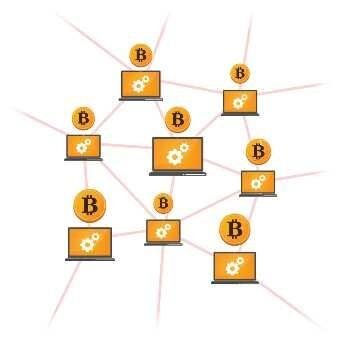
BTC, short for Bitcoin, is a decentralized virtual currency that was invented by Satoshi Nakamoto.The anonymous inventor or group published a white paper in 2008 as a proof of concept, then released it as open-source prototype software in 2009. Bitcoin uses peer-to-peer technology to operate without a central authority or banking institution;managing transactions and issuing new BTC, also known as mining, is carried out collectively by the network.Bitcoin has many unique characteristics compared to traditional credit cards such as international payments,low transaction fees, irreversible transactions for merchants, and security through encryption.
How is new Bitcoin created?
Bitcoins are only created as a reward for proof of work involving cryptographic hashes called mining.Users offer their computing power to verify and record payments in to a public ledger, known as the blockchain.Bitcoin that is already mined is in circulation and can be exchangedfor goods and services.There will only ever be 21 million bitcoins in existence, with the final fractions of bitcoin being redeemed by miners in the year 2140. If this great bitcoin experiment succeeds and people still use it after that point, BTC miners will besupported exclusively by numerous smalltransaction fees – which are required to let your transactions be included swiftly into the blockchain.However, these coins can be divisible into smaller units, unlike regular currencies bitcoins are divisible by up to 10^8, which means that over timepeople will have the ability to use tiny little fractions of bitcoin to buy things.The smallest divisible unit of a bitcoin is aptly named a 'Satoshi'.
How does bitcoin price calculated?
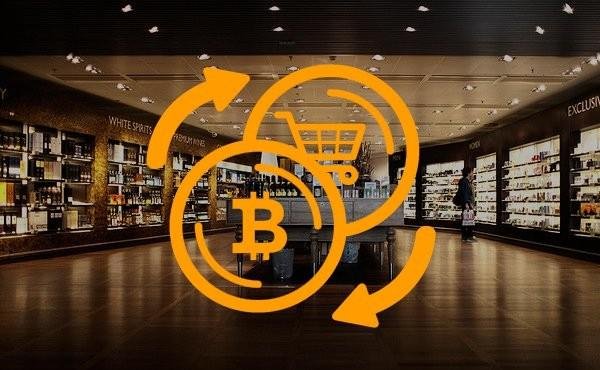
The price of bitcoin is determined by its supply and demand.When demand for bitcoin increases, the price increases, and when demand falls, the price falls.There is only a limited number of BTC in circulation and new bitcoins are created at a predictably diminishedrate.Demand must follow this level of inflation to keep the price stable.
>>Why do people trust Bitcoin?
Unlike centralized fiat payment systems, Bitcoin is fully open-source and decentralized.Transactions can be verified independently at any time.Bitcoin payments can be made instantly and directly without an intermediary.The whole system is protected by a combination of elliptic curve cryptography and hashingon the sha256 curve.Together these mechanisms sufficiently provide large enough random key-space that cannot be attacked by hackers or gamed through mathematics.  )
Major Bitcoin Wallet Platform Breadwallet Secures $7 Million in Funding as Adoption Grows
)
Major Bitcoin Wallet Platform Breadwallet Secures $7 Million in Funding as Adoption Grows
Breadwallet, the open-source bitcoin wallet platform used by millions of active users, has recently secured a $7 million funding round to address the rapidly increasing demand towards bitcoin and rising mainstream adoption of the digital currency.
Previously, upon securing its first investment from venture capital and angel investors, Breadwallet focused on the development and deployment of its decentralized and non-custodial iOS bitcoin wallet.Within three years of operating, Breadwallet has expanded across 150 countries, providing necessary infrastructure for bitcoin users and investors.
With the latest multi-million dollar investment, the Breadwallet team announced the establishment of its headquarters in Switzerland, due to its practical regulatory frameworks towards digital currency businesses and the country’s flourishing bitcoin industry.
Breadwallet CEO Adam Traidman stated:
“Switzerland has emerged as a hotbed of digital currency startup activity, and we were attracted by its leadership in conservative financial legislation.Its strong reputation for financial privacy for consumers is the ideal fit for our charter to empower individuals with the benefits of bitcoin.”
Earlier this week, Bitcoin Suisse CEO Niklas Nikolajsen revealed that Falcon Private Bank has become the first financial institution in Europe to fully integrate bitcoin and offer trading services to its clients.Bank account holders at Falcon can easily trade bitcoin directly from their bank account, through Bitcoin Suisse.
However, as experts in the cryptocurrency sector including Shapeshift founder and CEO ErikVoorhees explained during an interview, non-custodial walletsremain the safest method of storing and securing bitcoin.Voorhees noted that it is still difficult for beginner and casual users to operate their own bitcoin wallets.But, in terms of security, privacy and flexibility, Voorhees emphasized that digital wallets such as Breadwallet and KeepKey are significantly more secure than centralized systems.
“Bitcoin and bitcoin wallets give people sovereignty over their money.And that comes with a certain degree of responsibility.There’s a little bit of a learning curve.If you want to be responsible and control something you need to learn how to use it, just like when you want to learn how to use a car,” said Voorhees.
Hence, despite the presence of Xapo, Bitcoin Suisse and the integration of bitcoin by leading financial institutions, there still exists a large market for Breadwallet and its team in Switzerland and throughout Europe.Consumers may need centralized platforms like exchanges to carry out financial and trading activities.Still, users are in need of decentralized and non-custodial wallet platforms like Breadwallet to secure their funds.
“We are investing in breadwallet due to its unique business modeland forward thinking strategy.We believe that digital currency will become increasingly influential as the industry continues its rapid expansion, and breadwallet is well-positioned to be a dominant leader in the space,”
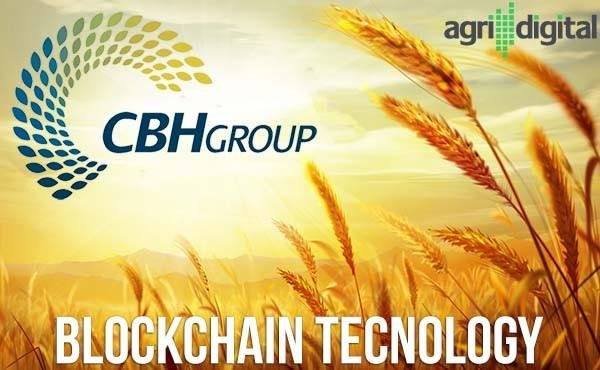
Major Cryptocurrency Exchanges Coinbase & BTC-E Disable Ethereum Due to Network Issues
On June 20, major cryptocurrency exchanges including BTC-E and Coinbase temporarily disabled Ethereum (Ether) withdrawals.In a statement, the BTC-E development team cited the “unstable operation” of the Ethereum network as the primary purpose of temporary withdrawal suspensionfor Ethereum traders.
The BTC-E team stated:
“Due to the unstable operation of the Ethereum network due to the network load, the ETH withdrawals is temporarily unavailable.”
Various traders and users of the Coinbase cryptocurrency trading platform including BTW Agency founder and COO Allan Yacaman also revealed that the Coinbase development team temporarily disabled all Ethereum withdrawalamidst an ongoing investigation into the network issues of Ethereum.
A statement from Coinbase read:
“We’re investigating an issue with Ethereum sends and receives on the Coinbase platform.All Ethereum transactions will be delayed in the meantime.We appreciate your patience while we work towards a resolution.”
Analysts such as real estate transaction and asset management platform Velox.RE founder Ragnar Lifthrasir along with many supporters of Ethereum Classic expressed their optimism towards Ethereum Classic, which recently altered its monetary policy that is more similar to that of bitcoin than Ethereum, due to thenetworkissues and blockchain congestion the Ethereum network is struggling to deal with.
On March 31, Ethereum co-founder and developer Vitalik Buterin revealed that investors allocating Ethers to purchase ICOs tokens from projects such as BAT and Bancor have attached thousands of dollars as transaction fee in order to secure their purchase ofICO tokens ahead of other investors.
Referring to a $2,220 transaction feeor gas an investor of the BAT ICOattached, Buterin explained that average Ethereum fees include such abnormal and absurd transaction feesthat are not beneficial to the Ethereum network.
“This is a $2220 transaction fee, used to cut in line in BAT ICO."Ethereum avg transaction fee $1" statistics include stuff like this.No moral connotations intended with "cut in line";it just so happens that capped sales degrade intohighly wasteful all-pay auctions,” said Buterin.
While the emergence of multi-million dollar ICOs and mega-successful ICOssuch as Bancor that have raised $150 million dollars played a driving factor in testing the flexibility and scalability of Ethereum, Buterin also explained that the vast majority of decentralized applications (Dapps) launched ontopof the Ethereum protocol have been coded or written inefficiently.
“Approximate gas usage distribution: 65% transactions / 23% gas simple xfers;30% transactions / 50% gas contract executes, 5% txs / 27% gas contract creates.Average new contract costs 400k gas.To save fees either (i)stop making as many contracts, or (ii) use DELEGATE CALL forwarders,” Buterin explained.
Ethereum is beginning to experience scaling issues due to the explosive growth of the ICO market.Like bitcoin, the Ethereum development team is working on various solutions to optimize the Ethereum network.
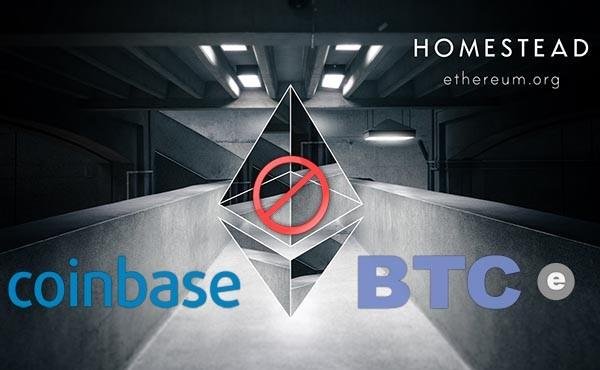
Major Australian Grain Handler is Testing Blockchain Technology For Distribution
Australia-based CBH Group, the handler of West Australian Grain, is actively testing a blockchain-based platform in collaboration with agriculture technology company AgriDigital to oversee and facilitate the sale of organic oats out of South Australian distribution company Blue Lake Milling.
Since early 2016, an increasing number of companies reliant on supply chains and large-scale distribution of products have started to utilize blockchain technology to facilitate trades and sales.Experts and analysts including Kimani Mbugua, CEO ofGreenspec, have emphasized that blockchain technology has the potential to significantly impact the agriculture and food industries with its cryptographically-secured timestamp-based ledger.
“The blockchain application has huge potential in three key areas of Agriculture which consist of Real Time Management, Supply Chain and Mobile Payment and Financing.With the blockchain, you’ll be able to know from the label what and how they used to produce the food when you buy it and they can never shortcut you,” Mbugua said in an interview.
Agriculture and distribution companies including West Australian Grain and Blue Lake Milling are required to rely on third party service providers in the three abovementioned areas of agriculture mentioned by Mbugua.Usually, companies rely on financial service providers, suppliers and professional services firms to ensure that financing, mobile payments, supply chain and real-time management are handled separately.
With blockchain technology however, companies like West Australian Grain can oversee real-time management with the immutable blockchain technology, supply chain with its ledger, and mobile payments and financing with cryptocurrencies and tokens.
CBH Chief Executive Andrew Crane explained that with the pilot test of West Australian Grain’s blockchain technology, the company and its developers are focusing on security and flexibility in payments.He stated:
"Blockchain can be used in a range of different ways be it smoothing out transactions, better security or quicker payment methods or as a proof of where the grain has come from and where it's been on its journey through to the customer. "These are threereal benefits there and we are testing all of those,"
In order to demonstrate a high level of security, especially for large-scale agriculture firms, the implementation of a public blockchain network that has large hashpower support and nodes is key.Bitcoin and Ethereum are possible candidates, but the latter is more likely due to its flexibility and utilization of smart contracts.
Crane further noted that the development team behind West Australian Grain is also focusing on creating a transparent system with which the suppliers, customers and distributors can access data in real-time.
"We are looking at being able to track from farm all the way through Blue Lake Milling as a processor, to the buyer of those oats and being able to prove that those oats have not only come from a particular origin but also their organic status inthis case," said Crane.
The blockchain network that is being implemented by AgriDigital has not been disclosed.However, the implementation of any blockchain networks and successful commercialization of the blockchain platform will spur the growth of the blockchain industry within Australia.
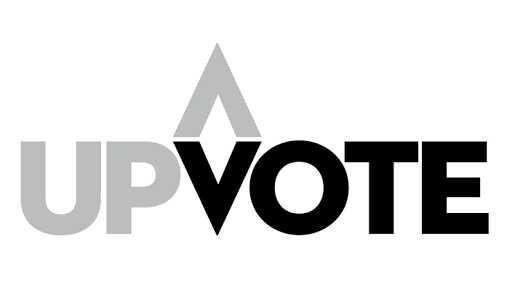
By @alfa-good
#bitcoin
i have not tried bitcoin, before what i should do
Very informative articles for crypto newcomers!